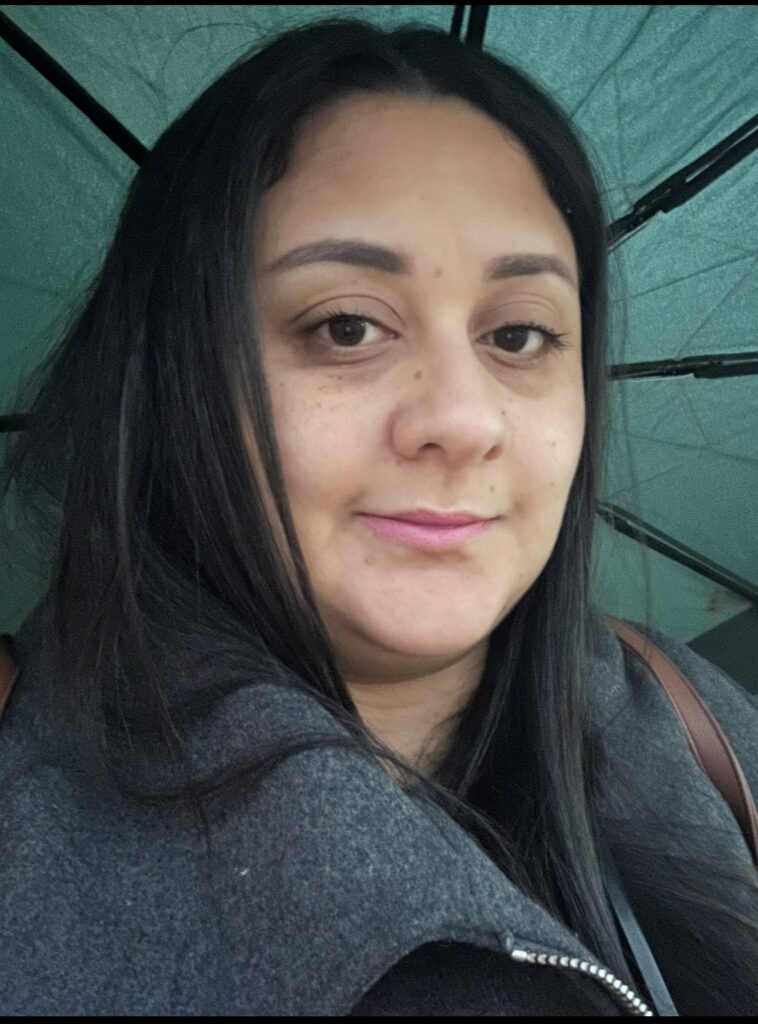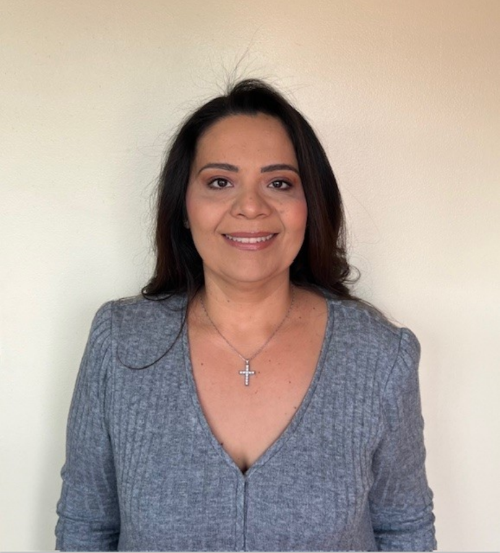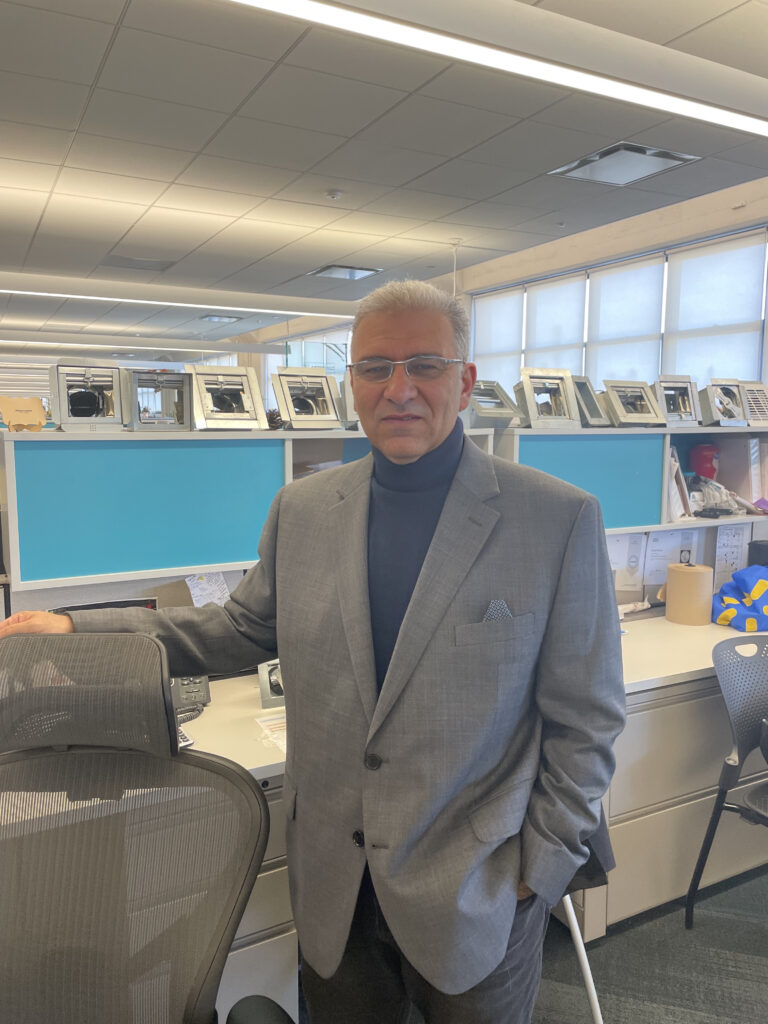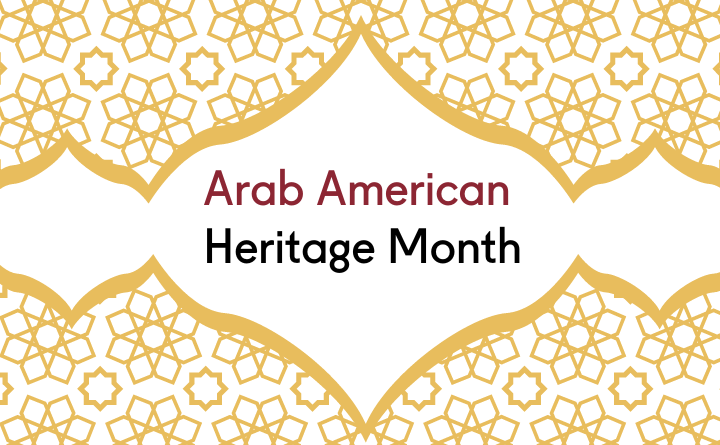Celebrating Arab American Heritage Month
April is Arab American Heritage Month, a time to recognize the contributions, heritage, and culture of Arab American people.
In the United States, there are over 3.5 million Arab Americans who come from 22 countries across the Middle East and North Africa; a third of the population of Arab Americans in the U.S. live in California, Michigan, and the New York City/New Jersey areas. From Algeria to Yemen, each country contributes unique traditions and customs to Arab American identity.
The United States Department of State officially recognized April as National Arab American Heritage Month in April 2021. NYCHANow spoke to three Arab American employees about their culture, heritage, and customs.
Mariam Gendy, Supervisor of Electrical Maintenance and Installation, Lead Hazard Control Department

When did you or your family come to the U.S. and why?
I’m from Egypt and I came to the U.S. in 2017 when I was 26 years old. We came here because any Arabic person thinks that the USA is heaven, so we wanted to see heaven and we made it here.
What is a tradition from your country/culture that you would like to share with your colleagues?
One tradition from Egypt that I find fascinating and would love to share is the celebration of Sham El-Nessim, which means “smelling the breeze.” This ancient Egyptian festival dates back thousands of years, marking the arrival of spring and the start of the agricultural season. Sham El-Nessim is celebrated on the Monday following the Coptic Christian Easter. It’s a day when Egyptians of all backgrounds come together to enjoy outdoor picnics, usually near bodies of water like the Nile River or in parks. Families gather to feast on traditional foods like salted fish, colored eggs, and a variety of spring vegetables.
What I find particularly special about Sham El-Nessim is its inclusivity and connection to Egypt’s rich history. Regardless of religion or social status, everyone participates in this joyful occasion, emphasizing unity and harmony among the Egyptian people.
Why is celebrating Arab American Heritage Month meaningful to you?
Celebrating Arab American Heritage Month holds significant meaning for me because it acknowledges and honors the rich cultural contributions and diverse heritage of Arab Americans to the fabric of American society. As an Arab American, seeing our culture, traditions, and history officially recognized and celebrated on a national scale is incredibly empowering and validating.
Arab Americans have made invaluable contributions to various fields, including science, art, literature, cuisine, and politics, shaping the cultural landscape of the United States. This month also provides an opportunity to combat stereotypes, misinformation, and discrimination often faced by Arab Americans. It promotes understanding, acceptance, and inclusivity, fostering a sense of pride and belonging within the Arab American community and beyond. It’s also a time to reflect on our heritage, honor our ancestors, and inspire future generations to embrace their identities while contributing positively to their communities and the world at large.
Who inspires you?
Malala Yousafzai inspires me because her unwavering courage, resilience, and dedication to advocating for girls’ education in the face of adversity are truly remarkable. Despite facing threats to her life, Malala remained steadfast in her pursuit of education for all, becoming a global symbol of hope and empowerment. Her passion for equality and justice serves as a constant source of motivation for me to strive for positive change in the world, no matter how daunting the obstacles may seem.
Mira Hanna, Community Coordinator in Public Housing Tenancy Operations, LIHTC Unit

When did you or your family come to the U.S. and why?
I came here in 2004 with my husband and young son. We had a good life in Egypt and were well established there, but the U.S. is the land of opportunity and dreams. We were dreaming a little bigger, thinking about better opportunities for work and creating a better life for our son and our future. We had relatives in the U.S. and decided to take the chance and start a new life here. Ultimately, through God’s grace, the chance we took paid off. My husband is an engineer and professor at NYU, my son is finishing up his third year of medical school at Rutgers, and I work in and for the greatest city on Earth, New York.
What is a tradition from your country/culture that you would like to share with your colleagues?
Every Egyptian celebrates the spring feast of Sham El-Nessim. It’s an ancient pharaonic celebration that’s been celebrated in Egypt for millennia. It takes place the day after Coptic Orthodox Easter Sunday, and it’s like springtime-flavored Thanksgiving. The entire country is off and it’s a day that unites the people, whether they are Muslim or Christian, together as one country. Everyone goes outside and picnics in the parks and beaches, eating the very traditional fesekh, a fermented fish dish that goes back to ancient Egyptian times.
I keep these traditions with my son and hope that he keeps them for his future family. I make sure to take the day off for Sham El-Nessim, and I make traditional Egyptian foods, including the very special fesekh. I’ve always instilled in him that while he is to be a proud American, to never forget his roots and where he came from.
Why is celebrating Arab American Heritage Month meaningful to you?
Diversity is what makes America so strong and vibrant; we all take the good from where we immigrated from and integrate it to the good in our new life here in the U.S. This month helps celebrate the diversity and beauty of this country. I’m so proud of the culture I came from, and I want to introduce the beauty and roots of my culture to everyone. I enjoy learning more about other cultures, and through Arab American Heritage Month, others can be introduced to our culture through me. There are a lot of lessons to learn from others and it’s nice to get to know about different people and their cultures, how they do certain things, how they deal with certain things – it all makes this melting pot of ours better and more beautiful. The U.S. is built on the tenet that all humans are created equal. That’s why we came to the U.S. It doesn’t matter your color, your country, or your race, you are a human being and have the right to life, liberty, and the pursuit of happiness. I’m so proud to be an Egyptian American and that we live in a country that celebrates the diversity of different cultures while also uniting people from all over the world under one flag. “Out of many, one.”
Who inspires you?
My parents inspire me because they always valued our education and our development. I’m the older of two sisters, and having a household of only girls in Egypt during the 80s and 90s was a big challenge. They put us through French Catholic schools at a time when it was considered a waste to send girls to private education; they taught us to be independent – we took public transportation and worked jobs in college, all very progressive and controversial things for parents to allow their daughters to do in those days. It’s because of them and the grace of God that I am the woman that I am today. They always believed in us and valued us, and I hope I’m able to carry on the same for my son as well.
Sherif Ibrahim, Administrative Project Manager in the Office of Mold Assessment and Remediation

When did you or your family come to the U.S. and why?
I was born in Alexandria, Egypt, in 1968. I completed all my studies as an architectural engineer then a master’s degree in construction quality management at Alexandria University. I’ve traveled around the world and, based on my experiences, I decided with my family to move to the USA. So, I came in 2015 as a new immigrant with a green card. Most of my uncles and aunts are American citizens; they came here from 50 years ago, so I followed them. I thought this is a good atmosphere for my kids to complete their educations. Both of them already graduated from college here: one is a chemical engineer and one is an IT engineer.
What is a tradition from your country/culture that you would like to share with your colleagues?
First, the warm hospitality, especially for visitors or strangers in Arab countries to show we welcome anyone who visits.
In Egypt, most of the population lives around the Nile River. Egypt was created by the Nile. The food and culture around the Nile is different because we have Arabs, Mediterraneans, foreigners – everyone loves to come for the different cultures and different tastes. It’s maybe more crowded than New York City on the weekends because everybody wants to go there and there is nice weather all throughout the year. Everyone going to Cairo loves to take a boat or a tour of the Nile at night. We have temples and museums and there’s over 7,000 years of history with different civilizations and countries – some of them occupied Egypt – so we have a lot of different types of food and cultures.
Why is celebrating Arab American Heritage Month meaningful to you?
I think it is great to have a month for Arab Americans where we can share our food, our cultures, and our history. There are around 450 million Arabs from 22 countries and each of them have a different culture. Egypt delivered the knowledge to the Greeks and Romans, who then added their knowledge and culture, and then it transferred to Europe in the Middle Ages. Our Arab countries put their input into history. The U.S. received knowledge from Europe and built upon it and increased the knowledge and education for the whole world. It’s important to connect the past to what will be in the future.
Who inspires you?
In American history we have a couple of Arab American stars lighting the sky in America. I’m proud that they have advised or added more to U.S. history. They tried to enrich and improve the culture and fabric of society with their talents. Khalil Gibran is from Lebanon, Steve Jobs’ father was born in Syria, Ralph Nader’s parents are from Lebanon, and Rami Malek is Egyptian. But the person I’m most inspired by and proud of is Ahmed Zewail. We graduated from the same college, Alexandria College in Egypt; he studied science and I studied engineering. He’s a Nobel Prize winner. He won because he created the femtosecond concept, which is how we can now take photos of atoms.







